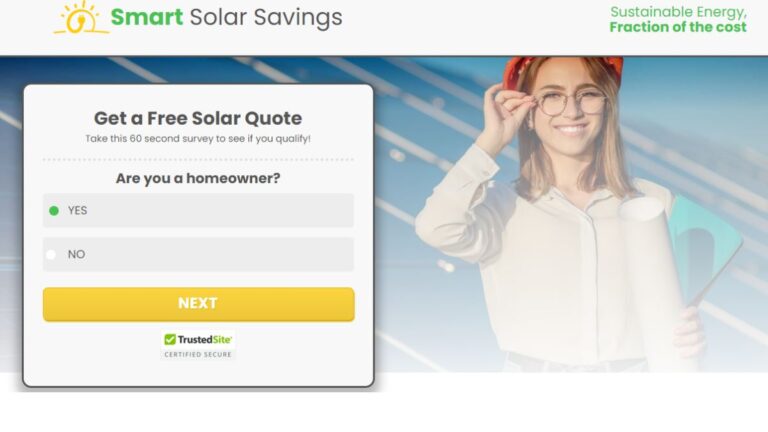9 Best Solar Power Incentives for Small Businesses
Looking to explore the advantages of solar power for your small business? Discover the top 9 solar power incentives for small businesses that can help you save big.
From tax credits to performance-based incentives, these programs offer financial benefits that can significantly reduce the cost of transitioning to solar energy.
But that’s not all – there are also options for grants, loans, and leasing, as well as net metering programs and storage solutions.
So, if you’re curious about how your business can take advantage of these incentives and make a sustainable choice, keep reading to find out more.
Key Takeaways
- Tax incentives such as the Investment Tax Credit and Modified Accelerated Cost Recovery System help reduce solar installation costs for small businesses.
- Grants, loans, and financial support programs are available to reduce upfront costs for solar power installation.
- State and local tax incentives offer exemptions, rebates, and grants for solar installations, making solar power more affordable for small businesses.
- Solar power purchase agreements and leasing options allow small businesses to save on electricity bills without upfront costs or large capital investments.
Federal Investment Tax Credit (ITC)
The Federal Investment Tax Credit (ITC) offers small businesses a valuable opportunity to reduce their tax liability and save on installation costs through solar energy projects. By taking advantage of the ITC, small businesses can benefit from a tax credit of 30% of the value of their solar installations. This credit can significantly reduce tax costs and provide a financial incentive for small businesses to adopt solar power early on.
It’s important to note that the ITC percentage is set to decrease over time, making early adoption even more financially beneficial. By investing in solar projects before 2032, businesses can secure the full 30% ITC and maximize their savings.
The ITC is a crucial incentive for small businesses looking to invest in solar energy and reap the rewards of reduced tax liability and installation costs.
Modified Accelerated Cost Recovery System (MACRS)
You can take advantage of the Modified Accelerated Cost Recovery System (MACRS) to reap significant tax benefits for your small business.
MACRS allows you to depreciate the value of your solar asset over five years, which can lead to substantial financial savings.
Tax Benefits for Solar
Small businesses can significantly reduce their taxable income by taking advantage of the Modified Accelerated Cost Recovery System (MACRS), a tax benefit that allows for accelerated depreciation of solar assets over a period of five years. This structured way of depreciating solar investments can result in substantial tax savings for small businesses.
By combining MACRS with the Federal Investment Tax Credit (ITC), businesses can maximize their tax benefits even further. MACRS enables small businesses to deduct a large portion of the solar system cost in the early years of ownership, providing immediate financial relief.
This tax benefit allows businesses to recoup the cost of their solar investments in a structured manner, freeing up funds for other business operations. By leveraging the MACRS tax benefit, small businesses can enjoy the tax savings and financial liberation that solar power provides.
Depreciation Advantages
By taking advantage of the Modified Accelerated Cost Recovery System (MACRS), small businesses can benefit from accelerated depreciation of solar assets, resulting in substantial tax savings.
MACRS allows businesses to recover the value of solar assets over five years through accelerated depreciation. This means that small businesses can depreciate 85% of the project’s value over the first five years, providing them with a faster recovery of their solar investment costs compared to traditional depreciation methods.
By deducting a significant portion of their solar project costs using MACRS, small businesses can also reduce their taxable income. This not only lowers their tax liability but also enhances the financial attractiveness of solar installations for small businesses.
With MACRS, small businesses can maximize their financial savings and make their solar investments even more beneficial.
Financial Savings Opportunities
Taking advantage of the Modified Accelerated Cost Recovery System (MACRS) can provide small businesses with significant financial savings opportunities for their solar investments.
MACRS allows businesses to recover the value of solar assets over five years through accelerated depreciation. By spreading out the depreciation of solar investments, small businesses can reduce their tax liability and lower the upfront cost of solar installations.
This accelerated depreciation can also improve cash flow for small businesses, making solar projects more financially viable. To better understand the financial savings opportunities offered by MACRS, refer to the table below:
| Financial Savings Opportunities |
|---|
| Reduced tax liability |
| Lower upfront cost |
| Improved cash flow |
State and Local Tax Incentives
When it comes to state and local tax incentives for small businesses going solar, there are several points to consider.
- Tax credits and exemptions can help reduce the overall cost of solar installations.
- Rebates and grants may be available from certain cities in Texas, providing additional financial support.
- Property tax incentives can further incentivize small businesses to invest in solar power, reducing the burden on their bottom line.
Tax Credits and Exemptions
State and local tax incentives offer small businesses significant cost reductions when installing solar power systems. These incentives include property tax exemptions, sales tax exemptions, and other financial benefits.
In Texas, small businesses can take advantage of property tax exemptions for solar panel installations, resulting in long-term savings. By eliminating the property tax burden on the solar equipment, businesses can allocate those funds towards other important aspects of their operations.
Additionally, sales tax exemptions on solar panel purchases in Texas further reduce the upfront costs for small businesses investing in solar. These tax incentives make solar power a more affordable and attractive option for small businesses looking to go green and reduce their carbon footprint.
Rebates and Grants
To further enhance the affordability of solar power for small businesses, state and local governments provide rebates and grants as incentives for investing in solar energy systems. By taking advantage of these tax incentives, small businesses can reduce their upfront costs and offset expenses associated with installing solar power. Here are some key points to consider:
- Rebate amounts vary by location, ranging from a few hundred dollars to thousands of dollars.
- Grants may be available for small businesses in specific industries or regions, further reducing solar installation expenses.
- These incentives significantly lower the financial burden of adopting solar power, making it a cost-effective choice for small businesses.
Investing in solar energy not only helps businesses save money on their energy bills but also demonstrates their commitment to sustainability. By going solar, small businesses can contribute to a cleaner environment and benefit from long-term energy savings.
Property Tax Incentives
By taking advantage of property tax incentives, small businesses can significantly reduce their tax burden while investing in solar energy systems, making it a financially feasible and attractive option.
Many states offer property tax exemptions on solar installations, allowing small businesses to save a substantial amount of money over the system’s lifetime. These incentives encourage small businesses to go solar by offsetting the potential increase in property taxes that may result from installing solar panels.
In addition to state incentives, local tax incentives may further reduce property tax assessments for small businesses investing in solar energy systems. This combination of tax incentives can make solar investments more financially viable for small businesses, providing them with the opportunity to contribute to a sustainable future while also saving money.
With property tax incentives, small businesses can’t only reduce their tax burden but also contribute to a cleaner environment.
Related Post: The Economics of Solar Power Generation: The Ultimate Guide.
Solar Renewable Energy Certificates (SRECs)
Small businesses have the opportunity to earn Solar Renewable Energy Certificates (SRECs) by generating solar energy and selling these tradable certificates to utilities or other entities seeking to meet renewable energy requirements. Here are some key facts about SRECs:
- SRECs are tradable certificates that represent the environmental benefits of generating one megawatt-hour of electricity from solar energy.
- The value of SRECs varies by state and market demand, typically ranging from $50 to $300 per certificate.
- Small businesses can use SRECs to create an additional revenue stream, helping to offset installation costs and improve the return on investment for their solar energy systems.
- By participating in SREC programs, small businesses can contribute to renewable energy goals, reduce their carbon footprint, and support a cleaner energy future.
- SRECs provide small businesses with an opportunity to not only save money but also make a positive impact on the environment.
Grants and Loans for Small Businesses
If you’re a small business owner looking to finance your solar power installation, there are grants and loans available to help you reduce upfront costs and make the transition to renewable energy more affordable.
Grants are funds that don’t require repayment, while loans need to be paid back with interest. Programs like the USDA Rural Energy for America Program (REAP) offer grants and loans specifically for small businesses. These financial incentives can significantly reduce the upfront costs of going solar, making it more accessible and affordable for small business owners.
Solar Power Purchase Agreements (PPAs)
Solar Power Purchase Agreements (PPAs) provide small businesses with a cost-effective solution to access solar energy without the need for upfront investments. Here are the key benefits of PPAs for small businesses:
- No upfront costs: With PPAs, small businesses can go solar without needing to make any initial capital investment.
- Third-party ownership and maintenance: The solar system is owned and maintained by a third-party, relieving the small business of any maintenance responsibilities.
- Predetermined rate: Small businesses pay for the solar energy produced at a predetermined rate, which is usually lower than utility prices.
- Cost savings: PPAs provide long-term cost savings for small businesses, as they can benefit from lower energy costs compared to traditional utility bills.
- Electricity savings: By leveraging PPAs, small businesses can immediately start saving on their electricity bills.
Solar Leasing Options
When considering renewable energy options for your small business, one cost-effective solution to explore is solar leasing.
With solar leasing, you can install solar panels without any upfront costs. Instead, you pay a fixed monthly fee for the solar energy generated by the panels. This allows you to immediately start saving on your electricity bills without the need for a large capital investment.
The best part is that leasing companies take care of the maintenance and operation of the solar panels, which further reduces your maintenance costs. Additionally, many leasing options come with performance guarantees, ensuring that your solar system operates at optimal efficiency.
Net Metering Programs
Net metering programs offer small businesses the opportunity to receive credits for excess solar electricity fed back into the grid. Here are five reasons why small businesses should consider participating in net metering programs:
- Excess solar energy generated can offset future electricity bills through net metering arrangements.
- By monitoring energy production and usage, small businesses can optimize the benefits of net metering.
- Net metering helps small businesses reduce operating costs and improve their bottom line by effectively utilizing solar power.
- Participating in net metering programs enhances the financial viability of small businesses investing in solar energy.
- Small businesses can receive credits for the excess energy they produce, further optimizing the financial benefits of net metering.
Solar Performance-Based Incentives
To maximize the financial benefits of investing in solar energy, small businesses can take advantage of Solar Performance-Based Incentives (PBIs), which provide additional incentives based on the actual energy production of their solar systems. PBIs offer small businesses the opportunity to earn financial rewards for each unit of energy generated by their solar systems.
States like Massachusetts have implemented programs like the Solar Massachusetts Renewable Target (SMART), which offers PBIs to encourage solar adoption. By receiving PBIs in addition to energy bill savings, small businesses can enhance the financial benefits of going solar. These incentives can significantly reduce the payback period for small businesses investing in solar energy systems, making the switch to solar even more appealing.
In addition to saving on energy costs, small businesses can also take advantage of tax incentives and other financial benefits that come with solar adoption.
Frequently Asked Questions
Can I Write off Solar Panels for My Business?
Yes, you can write off solar panels for your business. Taking advantage of tax benefits for renewable energy can lead to energy savings, a positive environmental impact, and a strong return on investment. Explore financing options, government grants, and long-term cost savings through solar panel installation.
What Is the Best Solar Incentive?
The best solar incentive is the Federal ITC, providing a 30% credit on solar project costs. Combine this with MACRS and access tax incentives worth over 70%. PBIs also reduce payback time and increase ROI.
Is the State of Texas Paying for Solar Panels?
Yes, the state of Texas offers incentives such as tax credits, rebates, and exemptions to make solar panel affordability more accessible. You can benefit from government grants, tax benefits, and financing options to maximize your return on investment and promote business sustainability with renewable energy options. Take advantage of the advantages of solar energy for small businesses by following these steps to go solar in Texas.
Is Solar Worth It for Business Owners?
Solar is definitely worth it for business owners. You can save money on energy costs, get tax benefits, and contribute to a greener environment. The return on investment for solar power is high, making it a smart choice for small businesses.
Conclusion
So, if you’re a small business owner looking to invest in solar power, these incentives are a game-changer. The Federal Investment Tax Credit (ITC) and Modified Accelerated Cost Recovery System (MACRS) provide significant cost savings.
State and local tax incentives, Solar Renewable Energy Certificates (SRECs), grants, loans, power purchase agreements (PPAs), leasing options, net metering programs, and performance-based incentives further enhance the financial benefits.
With these incentives, going solar isn’t only cost-effective but also a sustainable choice for your business. Don’t miss out on these opportunities!






